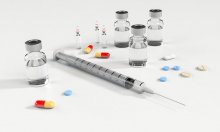You are here
TOX-Free: A virtual mirror to detect neuro- and cardiotoxicity of drugs, pesticides, and chemical pollutants.

TOX-Free: A virtual mirror to detect neuro- and cardiotoxicity of drugs, pesticides, and chemical pollutants.
The recently started TOX-Free project will develop an innovative technique based on optical methods that will set a new paradigm for the toxicity assessments of various substances. Researchers will use specifically designed Multi Channel Systems (MCS) equipment and software together with a novel biosensor, called “VICE”, that will be able to evaluate the safety profile of molecules in vitro, both in short-term and long-term recordings. The project will last 3 years and builds on EU funding of 3-million Euro in the framework of the Horizon 2020 program.
In the TOX-Free project, MCS and its consortium partners will develop a new device able to detect the toxicity of drugs and pesticides in the early stage of their testing phase. Researchers aim to assess neurotoxicity and cardiotoxicity of drugs by studying cells through a novel virtual mirror, called VICE (VIrtual Mirror CEll), where fluorescent spots light up when cells react to substances and a high-speed camera registers the corresponding image. This new in vitro technique will be entirely non-invasive. Moreover, the new technique will be capable of recording electrical signals from human neuronal and cardiac cells, evaluating acute and – for the first time ever – chronic effects of the analysed substances on human health.
60% of new drugs are usually withdrawn from the market in the later development or post-marketing phases due to neurotoxicity or cardiotoxicity. At the beginning of the drug development process, assessments are typically done to understand whether a substance, exposed to cells, can damage the cells or affect their function. However, the current techniques for the toxicological evaluations present some limitations: they either lack in accuracy or are extremely precise but their output can only assess the cells’ immediate and acute reaction, leaving us blind for the long-term side effects of drugs.
The TOX-Free approach is based on a non-invasive in vitro technique, designed for the evaluation of cardiotoxicity and neurotoxicity of drugs and toxicants. It unites great accuracy in detecting drug safety with the possibility of recording chronic toxicological effects.
The TOX-Free researchers will combine specifically designed MCS technology and software with the VICE biosensor, developed by our partners from IIT in Genova. The VICE biosensor will create a fluorescent representation of the reaction of the cells, and this will be combined with electrical recordings of the cell’s activity, using MCS equipment. Cellular activity will be detected at single-cell level as well as at network level for assessing communication among neurons.
The TOX-Free technology could find direct applications in toxicology, pharmacology, and basic biology. More specifically, the technology is targeted to pharmaceutical companies and laboratories in the drug development and safety testing areas.
The TOX-Free project will last 3 years and its consortium involves partners from both academic and industrial backgrounds: The consortium is led by the Istituto Italiano di Tecnologia (IIT), who will develop the VICE biosensor; the research centres Naturwissenschaftliches und Medinizinisches Institut an der Universität Tübingen (NMI) and the Universität Konstanz will validate the technology by testing it with cellular models, while ChanPharm GmbH (Austria) will test the technology in toxicological screenings simulating industrial in vitro experiments. Finally, MCS will develop the electronics and the software for the management of the VICE biosensor.
